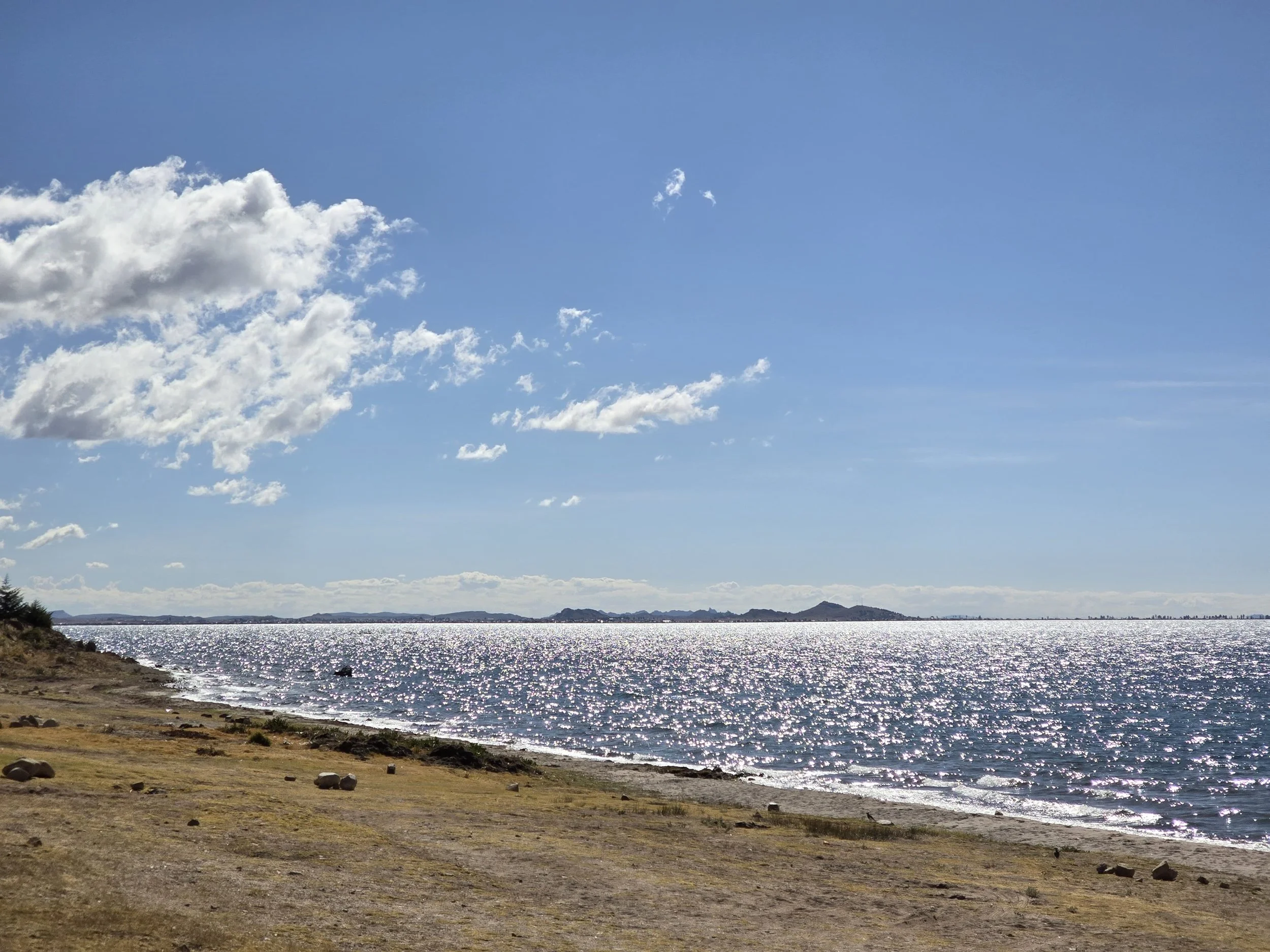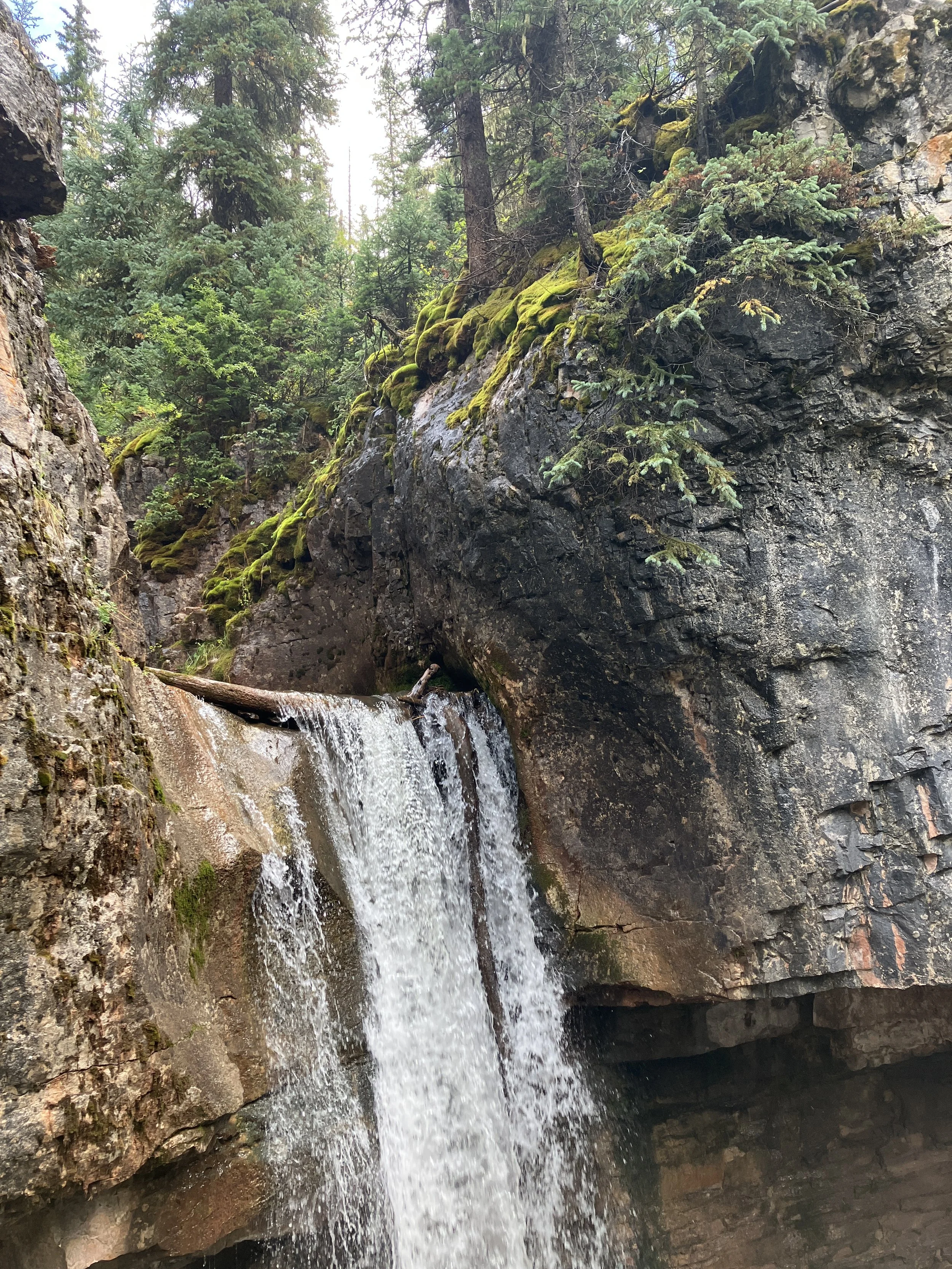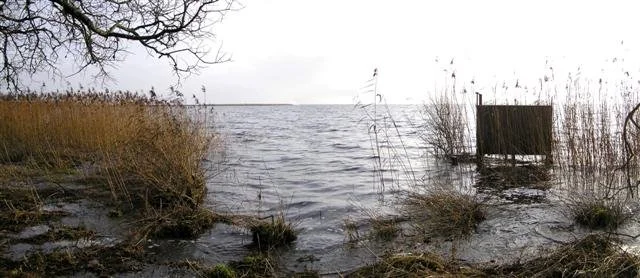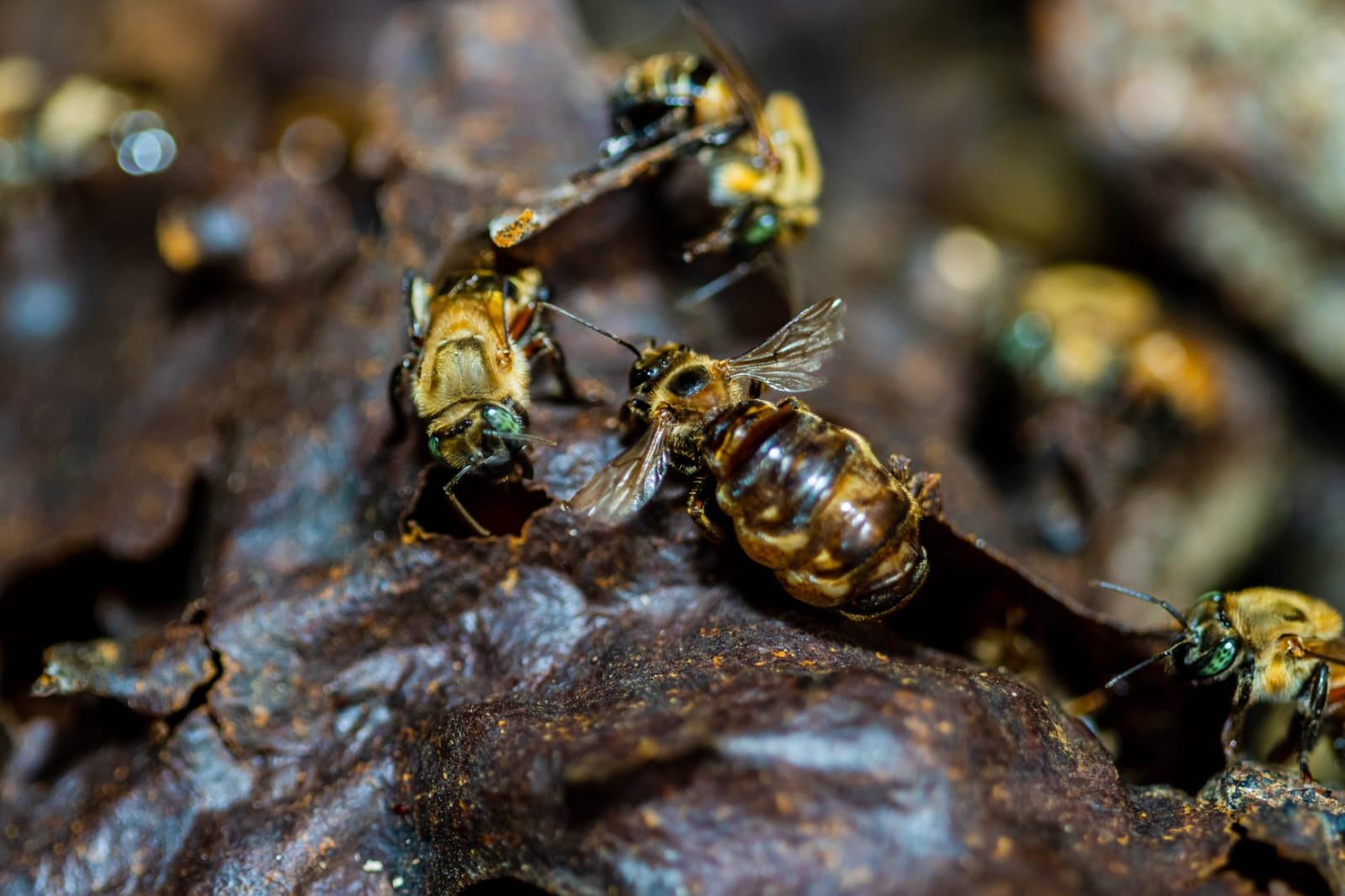
Earth Law Center Blog

Lake Titicaca in Danger: Community Action and the Rights of Nature
Lake Titicaca, a large mountain lake on the border of Perú and Bolivia, is sacred to the Aymara and Quechua peoples. Known as “Qota Mama” in the Aymara language, signifying the goddess of water in Andean cultures, the lake faces a serious environmental crisis that threatens its balance and the culture that has nurtured it for generations. In response, Earth Law Center's Latin America Legal Program is collaborating with Indigenous communities to defend the lake's rights, strengthen leadership—especially among women and youth—and support legal actions aimed at protecting the lake. Their work shows that recognizing the lake as a subject of rights is crucial for healing its waters and safeguarding the life, culture, and future of the Altiplano.

International Judicial Advisory Opinions, Ocean Rights, and the Legal Wave for Ocean Care
The world is experiencing an unprecedented moment of judicial involvement with the climate crisis. Within the span of 14 months, three international courts responded to requests to clarify states’ legal obligations on climate change. Together, these efforts and the courts’ opinions mark a turning point for environmental governance. They suggest that climate action is no longer just a political choice but a legal duty. This emerging legal wave could strengthen accountability and bridge the gap between environmental principles and practice. Because the health of the ocean underpins the planet’s climate stability, these advisory opinions may also reinforce a new legal and moral framework for ocean protection.

Book Review: “The Serviceberry” by Robin Wall Kimmerer
The ideas of mutual responsibility and reciprocity are essential to the gift economy described in The Serviceberry, and they can be more fully woven into the nascent and growing field of Earth Jurisprudence. If gift economies depend on abundance and create community and trust, can ecocentric law find ways to acknowledge and respect the currencies that flow within a gift economy?

River Ethiope Festival Week and Katampe Mountain & Waterfalls Abuja Campaign: Updates from ELC’s Africa Program
ELC Africa Program Lead Irikefe V. Dafe has worked tirelessly for decades on behalf of the River Ethiope and other rivers and ecosystems in Nigeria, including the promotion of a Rights of Nature legal framework for the river. He has also launched a new initiative for the Katampe Mountain near Abuja, Nigeria’s capital and geographic center.

Nature on the Board—and Three Other Creative Ways Nature Can Become Part of Corporate Governance
Did you know that Nature can be formally represented in the corporate boardroom and decision-making processes? One way to do so is through the appointment of a Nature “proxy”—a human being designated to represent the interests of Nature, to advocate for Nature’s rights, and to promote the agency of Nature as her voice. Earth Law Center’s Nature Governance Agency works with companies to embed Nature’s voice into governance through practical legal tools, learning facilitation, and tailored ecological training.

Lough Neagh: How Rights of Nature Could Restore a Lake and a Community
Lough Neagh (the Anglicized version of the Irish name, Loch nEachach, pronounced “lock nay,”) is the largest lake in the United Kingdom, an important resource for drinking water and the local fishing and farming economies. But it’s in trouble. Raw sewage and agricultural runoff have harmed the lake, including cyanobacteria algae blooms so bad they could be seen from space. Spurred by the crisis, a coalition of Earth law experts (principally Lawyers for Nature, Earth Law Center, Queen’s University Belfast School of Law, and a corporate law advisor from Pillsbury) have outlined several options for the community, including transfer pathways that would result in the lough’s self ownership.

In Landmark Opinion, Inter-American Court of Human Rights Recognizes Rights of Nature
On July 3, 2025, the Inter-American Court of Human Rights (IACtHR) issued its historic Advisory Opinion OC-32/25, declaring that the climate crisis has escalated into a “climate emergency” and affirming for the first time that States have clear obligations under human rights law to confront it. The opinion also marked the first time an international court has formally recognized Nature as a subject of rights.

Book review: “Is a River Alive?” by Robert Macfarlane
Woven throughout Macfarlane’s river journeys is an exploration into the Rights of Nature movement, which advocates for granting legal rights to rivers and other natural entities, often drawing inspiration from Indigenous worldviews and legal systems. Given Macfarlane’s literary pedigree and broad readership, Is a River Alive? thus marks a milestone in bringing the Rights of Nature movement to a wider audience. In an interview, Macfarlane explains, “I wanted to immerse myself in the sheer tumbling vigour of the young rights-of-nature movement, which is one of the running currents in the book.” And immerse himself he does, exploring the intricacies, challenges, and implications of the RoN movement, especially for river ecosystems and the many species, including humans, who depend on them.

Nature-conscious Crisis Response: On Rewarding the Guardianship of Marine Salvage
It is possible to normalize considerations of harm to Nature by accounting not only for the property and monetary losses related to a marine incident but also the intrinsic value and interests of marine ecosystems damaged in such incidents. In fact, governance within an industry such as marine salvage can help lead the way to a more ecocentric relationship with the ocean.

On the History and Future of the Rights of Mother Earth Declaration: An Interview with Doris Ragettli
My dream is that UN member states put forward the call for a Declaration of the Rights of Mother Earth, and then the signatures from our petition back up that call from member states as the voice of civil society.

Book Review: “Ecological Jurisprudence: The Law of Nature and the Nature of the Law” by Alessandro Pelizzon
Pelizzon demonstrates that it is the currently developing ecological jurisprudence—which he depicts more as a spectrum of theoretical possibilities than a single, unified approach—that provides our current legal institutions an alternative framework for engaging with Nature. This spectrum is broad enough to include the advances for Nature made by classic environmental laws, the additional protections afforded to other species through Rights of Nature initiatives, and the activism that has grown up alongside ecological jurisprudence.

Human Rights-Based Climate Litigation and the Rights of Nature: International Case Review and Analysis
This article reviews international, regional, and domestic human-rights based climate cases, as well as those Rights of Nature cases that implicate climate change. These two litigation strategies offer contrasting, yet complementary, visions of climate-related harm. While human rights cases have paved the way for the RoN movement in some ways, the tradition of human rights can also come into tension with the ecocentrism embodied in RoN, and it remains to be seen whether that tension will prove productive or inhibitory to the RoN movement over time.

Rights of Rivers Champion Marí Luz Canaquiri Receives 2025 Goldman Prize
Marí Luz Canaquiri Murayari, a Kukama leader from Perú’s Loreto region, has won the 2025 Goldman Environmental Prize, often referred to as the “Nobel Prize of environmentalism.” As president of the Federation of Kukama Indigenous Women — Huaynakana Kamatahuara Kana (HKK) — Canaquiri has spent decades defending her people, their culture, and the sacred Marañón River that sustains them. “It's incredible to receive this news—and even more so for the value accorded to us as women,” said Canaquiri in an interview with Earth Law Center (ELC).

The Rights of Nature in Brazil: From Municipal Law Reform to Rights of Waves and the Movement for a Federal Constitutional Amendment
There are more than 23 Rights of Nature cases in Brazil that have been approved or are currently underway. Brazil’s Rights of Nature (direitos da natureza) movement includes such highlights as the recent approval for the rights of the Linhares waves and of the Amazonian Komi Memen River. This new blog post begins with a brief look at the history of environmental protection in modern Brazil. It then examines the current cases and approvals of RoN in the country, as well as the potential for a constitutional amendment to codify the recognition of Nature’s rights in the country.

The 2002 Diné Fundamental Laws: The First Known Legal Codification of the Rights of Nature
The 2002 Diné Fundamental Laws is the first known codification of the Rights of Nature in a legal context. The Fundamental Laws outlines different rights and laws of the Navajo Nation and its people. It codifies the Diné Life Way. Diné, translating to “The People,” is the traditional name the Navajo people use to identify themselves. The Fundamental Laws addresses a myriad of priorities of the Navajo People and turns ancient, unwritten Navajo philosophy and laws into a more recognized form of law (at least a recognized form by Western standards). The Fundamental Laws also mentions different types of laws: natural law, customary law, common law, and traditional law.

“We need fierce hope and fierce love”: Earth Law Center Interviews Astrid Puentes Riaño, the United Nations Special Rapporteur on the human right to a clean, healthy and sustainable environment
Using international law obligations for this work and for the defense of the environment and human rights is a big opportunity, and it has systematically helped in a lot of situations. I've seen not only Indigenous Peoples and communities but also governments using international law to strengthen their arguments to be able to advance the control, monitoring, and protection of the environment.

Safeguarding Native Stingless Bees: Protectors of Amazonian Biodiversity
Safeguarding Amazonian Stingless Bees is an internationally recognized ongoing project. Begun in Peru in 2023, it is led by Amazon Research Internacional (ARI) working collaboratively with the Earth Law Center (ELC), Instituto de Investigaciones de la Amazonía Peruana (IIAP), Reserva Comunal EcoAsháninka, and the Kukama-Kukamiria Indigenous communities of Loreto. The project integrates scientific, traditional, and legal knowledge and includes adopting a Declaration of Rights for Native Stingless Bees, collecting data to help create technical standards and regulations to support stingless beekeeping, mapping an initial 150,000 hectares of the Amazon, and recognizing the crucial role of Indigenous Peoples' traditional knowledge in enhancing our understanding of stingless bee populations.

In a European First, Landmark Verdict Upholds Constitutionality of Mar Menor’s Legal Rights
On November 20, 2024, Spain’s Constitutional Court issued a pivotal ruling upholding the constitutionality of Law 19/2022, which grants legal personhood to the Mar Menor lagoon and its surrounding basin. This decision—the first in the European Union to establish Rights of Nature at the constitutional level—is a historic milestone for Earth law in Europe.
